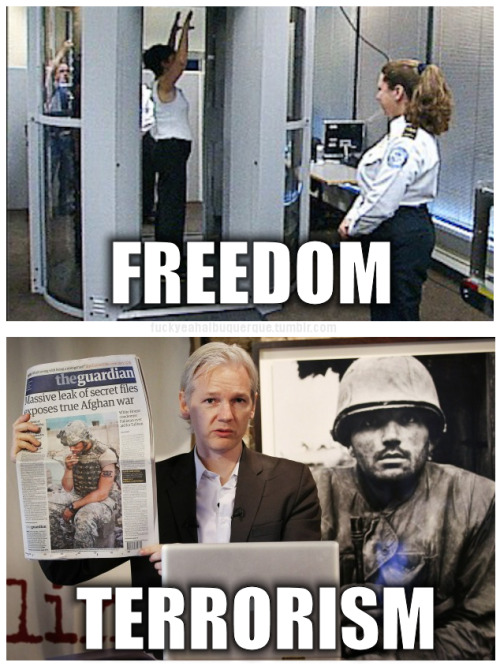they don't discriminate or separate what is important to keep governments from becoming cartoon characters themselves and what puts people in real danger.
The kicker here is that I don't think anyone can separate the two either.
If they have the US redact material, then they will essentially get a map of what the US considers important (because they have both the original and redacted versions). They aren't even citizens of the US, nevermind trustworthy people who have security clearance, so there's no way the US can do it.
They themselves can't possibly understand the importance of various pieces of information. They can guess at it, but there is likely information in there that appears tame which may be rather important once you fully understand the context (which can't always be understood from the documents alone) and vice versa.
The questions we should be asking:
- Are there situations where the government must operate in secret in order to carry out its primary mission of protecting and providing services for its own citizens?
- What about secondary missions, such as working with other leaders for peace (which indirectly impacts the primary mission)?
In other words, can a truly open government work, where every word uttered by anyone in any position paid for in part or fully with taxpayer money is up for review by the public?
If we cause a shift in how government works, such that secrets are no longer allowed, are we simply adhering to a "higher" law, or are we instead showing our hand too broadly to our enemies, such that we will ultimately lose? Are we playing a poker game with other world leaders?
---------- Post added at 01:27 PM ---------- Previous post was at 01:17 PM ----------
I keep thinking I'm trying to describe a "sea change" unsuccessfully.
I guess what I'm getting at is - can we fundamentally change government in a way that they would simply not care what others knew about them?
The best encryption algorithms are strong not because they are secret - in fact their success depends on everyone understanding the algorithm, and knowing that it's secure even though you can see the skeleton of the machine that performs the encryption.
In the same way can we re-define how our leaders govern our nation such that it won't matter who sees what.
FOIA was a tiny step towards this idea - the concept being that critical information has a time limit, after which it really isn't useful to our enemies and can be safely released.
The next step might be to require that all information be created with a reasonable specific expiration date in mind, and barring future action to extend the expiration, all documents would eventually come into the public hands. Ideally the expiration would be on the order of days, not months or years.
I'm open to the idea of going further and having everything immediately available, but I can't see how it would work without, for instance, completely undermining our military strength. The order to drop a bomb somewhere has to be kept a secret until after the bomb has hit its target, otherwise our enemies would always be able to avoid it.
But going backwards - are there not long-term efforts that the diplomats are setting up now that, like knowing the coordinates of the next strike, would completely fail if their efforts were known?



